New Year New Me
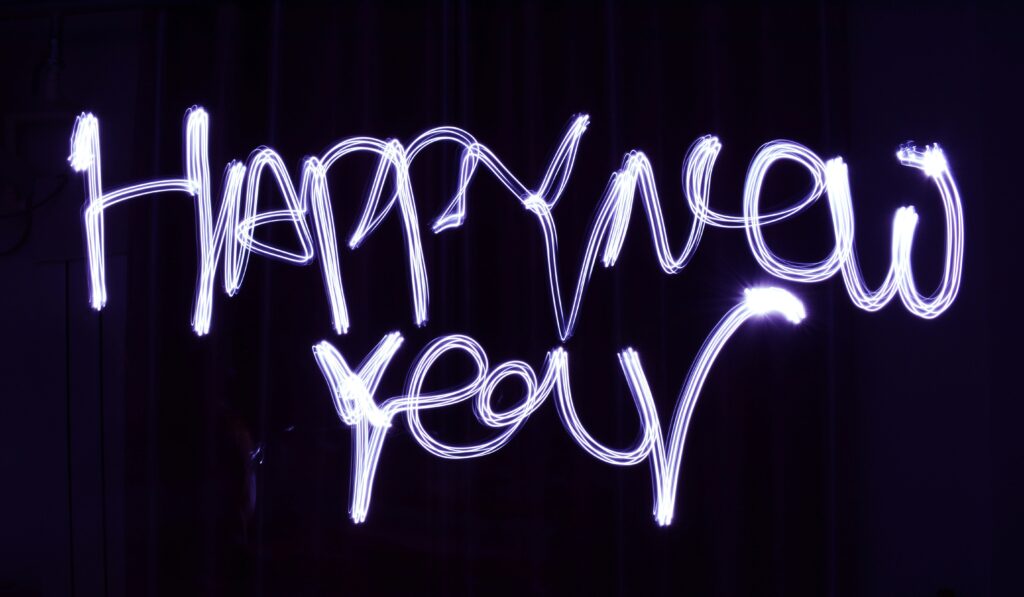
The transition into a new year brings on thoughts of change. “New Year, New Me!” is the common mantra for those who set the turn of the year as their time to become the person that they’ve dreamed of becoming. We’ve all begun new year’s resolutions, full of zeal and fervor, only to lose steam a month or two into a new goal.
For me, this was a Bible reading plan. For years, I began Bible reading plans only to miss a few days, then a few weeks, only to reach a point where two to three readings per day wouldn’t catch me up. 2024 marks the first year where I was able to consistently establish changes that I began in or just prior to December and consistently maintain them throughout the year.
Here are some of the strategies that I attribute to the changes.
Determine Your Why
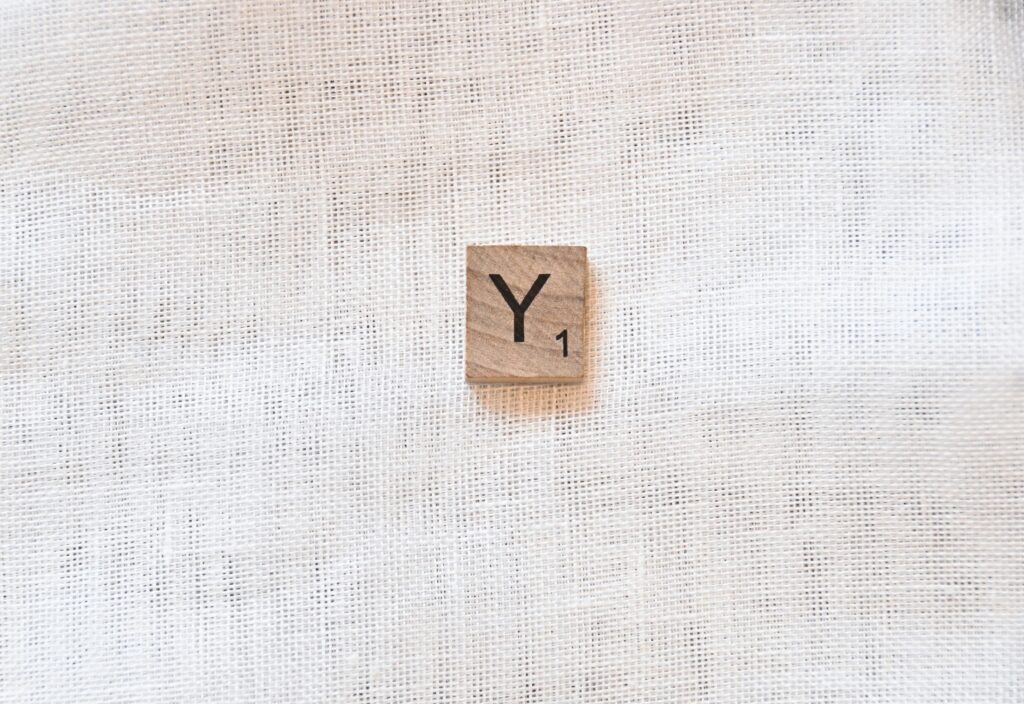
The first step is for you to figure out why you want to make the change. Without a why behind the what, you won’t stick to any log term changes when they become inconvenient. The what was to read through the Bible in 2024, but why was that important to me? I felt the need to create a devotional habit because I wanted to increase my knowledge of the word of God.
It is a general truth that you only know as much about God as you know about His word. Inviting God into my daily life was a way of growth for me and growing my relationship with Him. Also, the word of God tells us to renew our minds, and the way that’s done is by spending time in His word.
“I have stored up your word in my heart, that I might not sin against you.” (Psalm 119:11 ESV)
“Do not be conformed to this world, but be transformed by the renewal of your mind, that by testing you may discern what is the will of God, what is good and acceptable and perfect.” (Romans 12:2-3 ESV)
How: The Main Issue
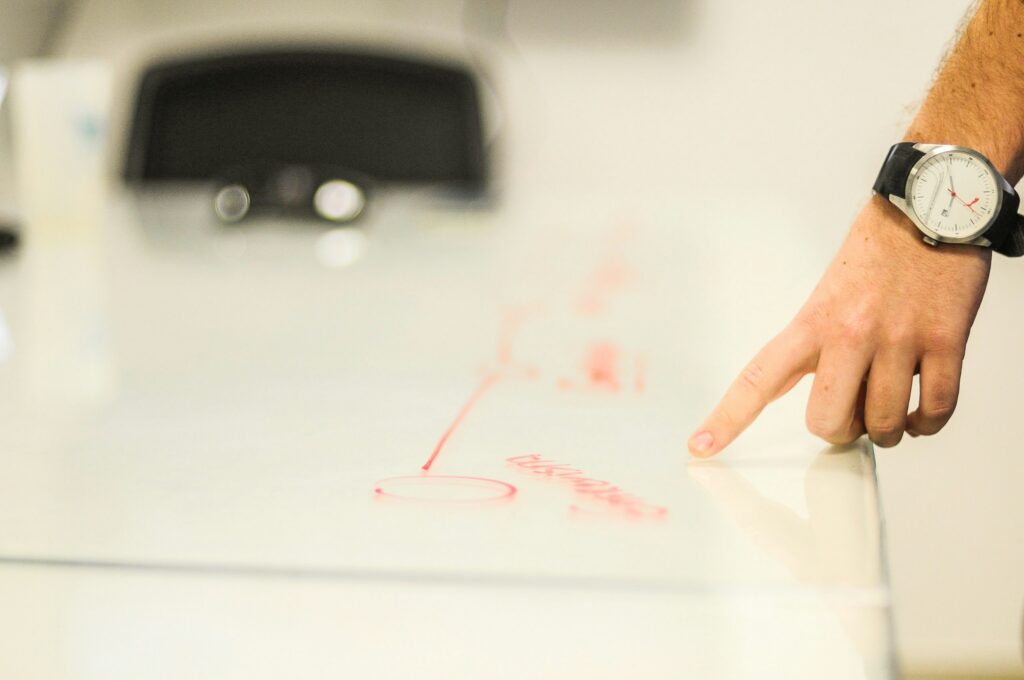
I found that even though I had the what and the why set, the main problem that I came up against was always the how. The majority of the strategies implemented in this section came from a book entitled Atomic Habits by James Clear. In this helpful book, Clear explains why we shouldn’t be goals oriented, but systems oriented. I Identified with this as every year that I tried to read through the word of God, I had the same goal; the system that I used was what made the difference.
Set Your Plan

How are you planning on achieving this goal?
The system begins with choosing its parameters. You want to read through the Bible in a year. Are you planning on using your physical Bible, or maybe a digital app? How will you determine what to read when? A simple plan from your favored Bible reading app will aid immensely with this choice, but this also exists if you have a good study Bible.
For example, the ESV Study Bible contains a bible reading plan found in the resources section at the back of the book. There is also a myriad of bibles on the market organized into daily readings, such as the One Year Bible.
Also, consider being specific about the time and place.
This aids in removing the guess work in the day to day. This decision doesn’t have to be anything formal either, it could be as simple as every night before I go to bed, I’ll reach on my nightstand, grab my Bible and complete my daily bible reading. Just stating this out loud, or writing it down gives it a sense of establishment. You’ll remember your own words, when you’re about to go to sleep without completing it.
Establish Your System
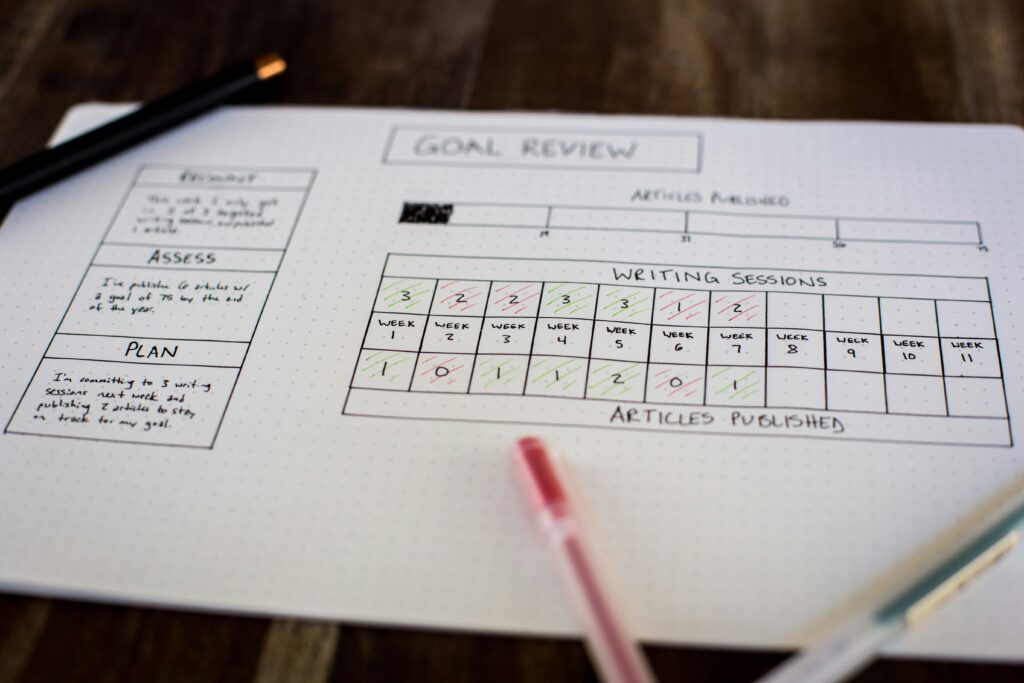
A good system is composed of set habits that work together to achieve a goal or set outcome. Habits, as defined by Clear are automatic solutions that solve the problems and stressors in your life. When a choice that once took effort becomes automatic.
The idea is to change the active choices that achieve the goal, into habits that you maintain with minimal to no thought. Clear recommends utilizing something that he calls habit stacking to achieve this. For instance, if you prefer to seek God first thing in the morning, you could add that habit to one that is already an established part of your routine.

Are you a morning coffee (or tea) drinker, begin your brew and immediately grab your Bible, or open the Bible reading app of your choice. This works much better if you have a favored location to enjoy your morning brew. Establishing a location and an action to tie this new habit to, will reinforce your association with the new habit.
This tie is what you’re looking for to “stack” the habit with the ones that you’ve established. After a short time, you won’t be able to engage in this routine without thinking of your Bible; it will feel strange if you “buck the trend” for a day.
This experience is the budding of a habit. You have successfully stacked that habit to the morning coffee routine, and your body has paired that with the reward that comes from the previous habit.
Plan for Hiccups
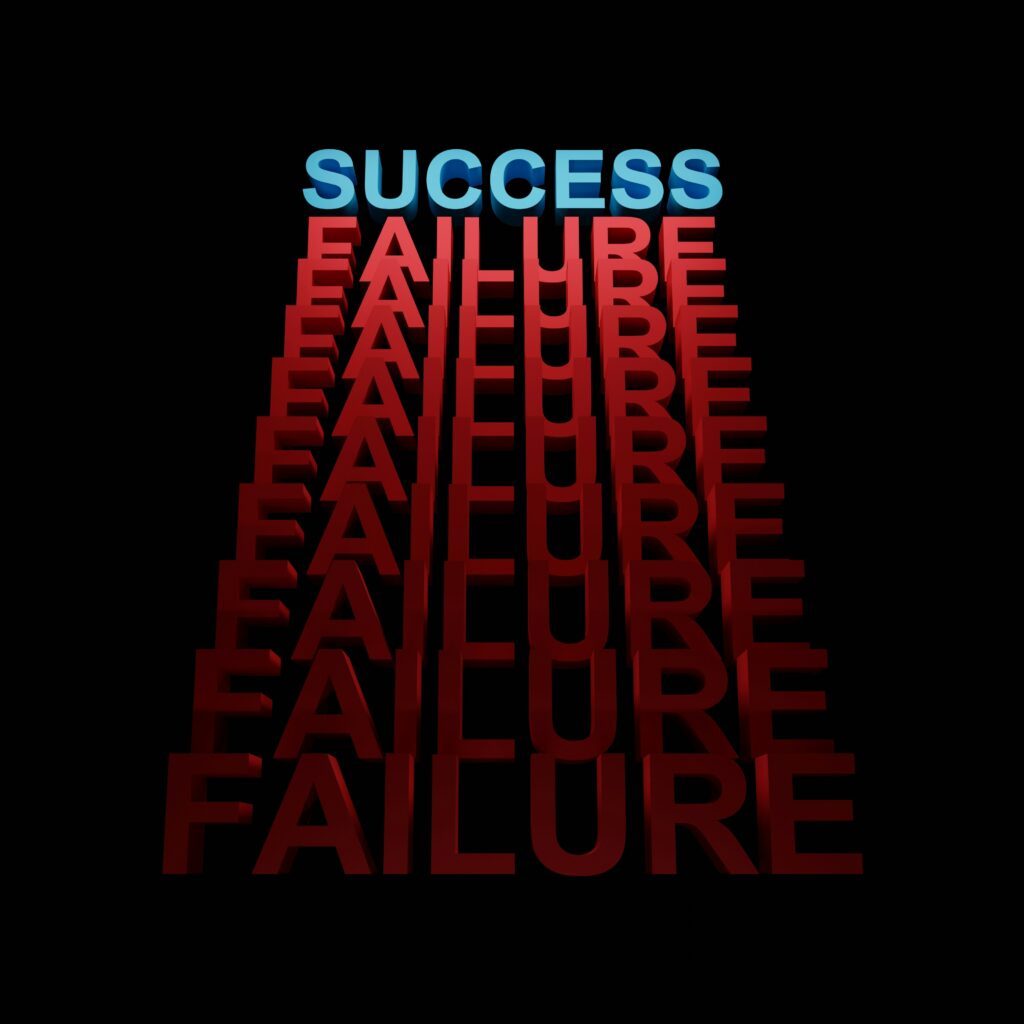
Establishing a habit is difficult. Completing it perfectly is almost impossible. The key to success is to plan for catch-up days in your system.
I think weekly check-ins are great, especially in the beginning. Plan once per week to ensure that you set aside the time necessary to catch up if you fall behind here and there. This will ensure that you never fall more than a few readings behind and never reach a point where it feels unattainable to catch up.
If you check-in weekly, the worst it can get is 7 days behind, which is a couple hours worth of reading at worst.
Track Your Progress

Most apps will complete this step for you. They will give you some sort of page or tracker that will mark off the readings as you complete them. If you are going the physical route, a simple paper and pen will work, but I do recommend utilizing technology with this.
The calendar and reminder apps on your smartphone will be a huge help, especially in the beginning when the habit is new and needs encouragement. There is also the added benefit of being able to look back on your progress throughout the year.
It’s quite encouraging for someone who struggles to maintain consistency with tasks, to look back three to six months in and see that they were consistent, or mostly consistent. When you’re struggling, you can look at this progress tracker for the added push to keep going. The best app that I’ve found for analyzing my progress has been streaks.

Streaks is a habit tracking app that will give reminders and offers differing options to track tasks over time. I use it on iPhone, but I believe that it is also available for Android. If not, there are plenty of apps on the market that will take care of this for you.
Review
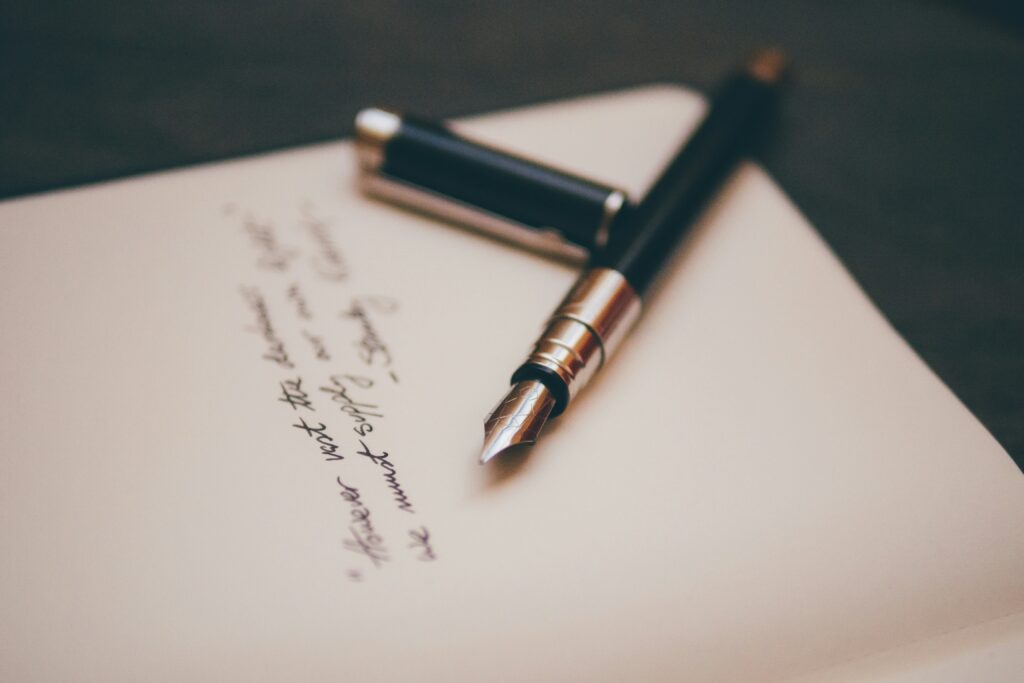
To find success in your Bible reading plan, or any other long term goal or change that you plan to make, consider taking the following steps. Determine your what and your why (This is the goal setting portion). Second, establish the how by planning out and putting a system in place to create the habits necessary to make achieving that goal as low stress as possible. Having a degree of specificity here aids in establishing the system; think particular place and time, or if there is a current habit that you can tie the new habit to. Plan to fail, and build catch-up days into your system. Lastly, remember to track your progress.
I’ve personally put these strategies into practice not just to complete a Bible reading plan, but to learn a language and become more productive all around.
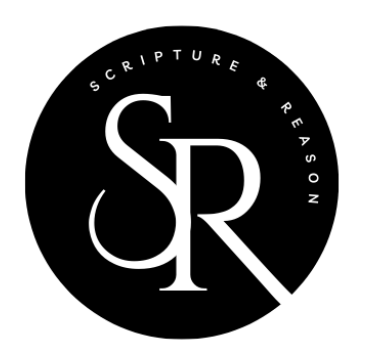
9 responses to “How to Finish That Bible Reading Plan: Or any other goal you set”
Good start for the new year!
Well done, Jay!
The information is very helpful! Thank you very much for your recommendations! I love your website!
Good Morning Son,
Thank you for the insight on improving the idea of being “systems orientented”. Atomic Habits by James Clear sounds like excellent reading about why we shouldn’t be goals oriented, but systems oriented. I found that carving out a time for daily devotion for me was paramount for my new walk with God. How could I get close to Him if I didn’t seek a Him on a regular basis? From the morning devotion a song “I can believe in God” was also associated with my devotional system. We all have heard the first song of the day in our head, all day long. My logic was to have a “church song” play in my mind all day which would also increase my walk with God. I improved the system of things to increase my time with God. This was done to strengthen and make me a better person. If I can improve myself, I can help others. I am now challenging myself to leave other distractions alone in my life so that again, I can increase my time with God. You are on a wonderful trend here, son, and I am most proud of you! Pray and ask God for His guidance in all that you do. It’s obvious He listens to your desires, because I am messaging you on your own website’s platform. I will share this on my FB page also. I love you.
Very interesting. This is one that I have to save and refer back to it often as I remember one of my weaknesses which is sometimes having coffee first and never get back to Jesus until later in the day.
This is absolutely a wonderful idea. I will definitely utilize the tools and tips you have recommended! Thank you and Continued Blessings
I really need to dig into a bible reading plan for the new year so that I can start off the year on a good foot. I think I’ll do a chapter and a coffee each morning.
This was very insightful and powerful. Truly a revelation to move forward with life. I will truly apply this in my everyday walk. It makes me feel less eager to understand myself and take the little necessary steps through everything I do. Thank you so much! I love and I will always support you.!
Hi Jay,
Wow, what a thoughtful and well-organized blog post! Your writing is both practical and inspiring, and it’s clear that you’ve put a lot of care and intention into creating something that will genuinely help others grow in their faith and productivity.
Your emphasis on understanding the why behind a goal, like finishing a Bible reading plan, is such an important reminder that our motivations should align with our spiritual growth and relationship with God. I also love how you integrated Scripture to emphasize the value of staying rooted in God’s word—Psalm 119:11 and Romans 12:2 are perfect references to encourage readers to renew their minds.
The practical tips you shared—such as habit stacking and building systems instead of just focusing on goals—are incredibly insightful. They make the task of staying consistent with a Bible reading plan (or any goal) feel achievable and less daunting. By tying your advice to real-life experiences, like your morning coffee routine, you’ve made it relatable and easy to implement.
This blog will undoubtedly help many Christians who may feel overwhelmed with their goals or discouraged by past setbacks. Keep up the amazing work—your words are meaningful and reflect a heart devoted to God and helping others. I’m looking forward to seeing more of your writing!
Blessings,
Tiffney Billions
[…] How to Finish That Bible Reading Plan: Or any other goal you set – J.M.Gamble Ministries […]